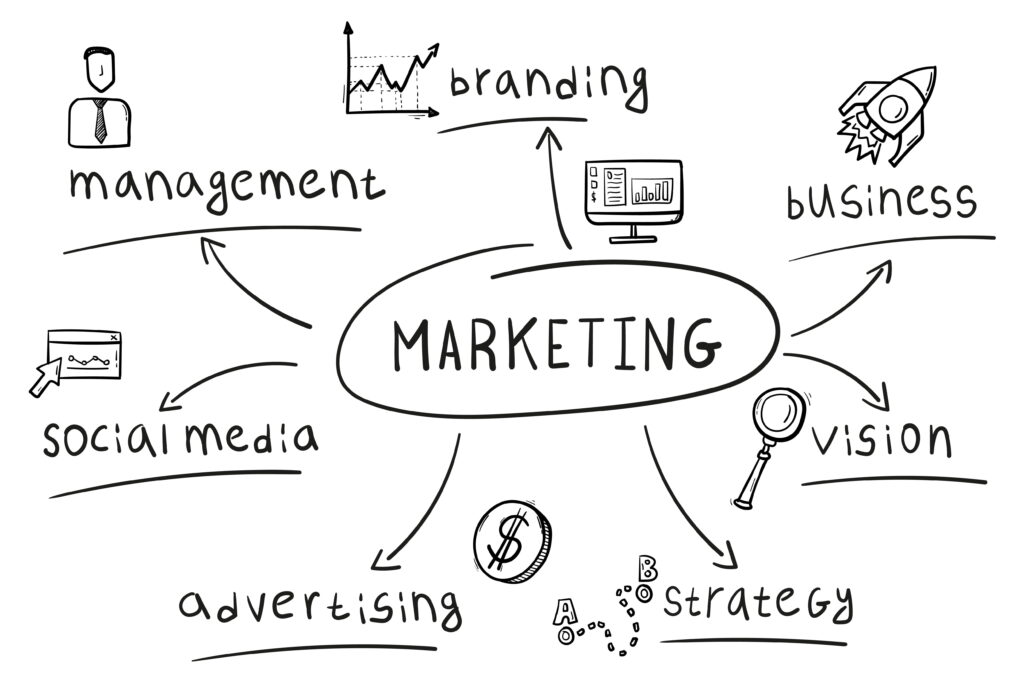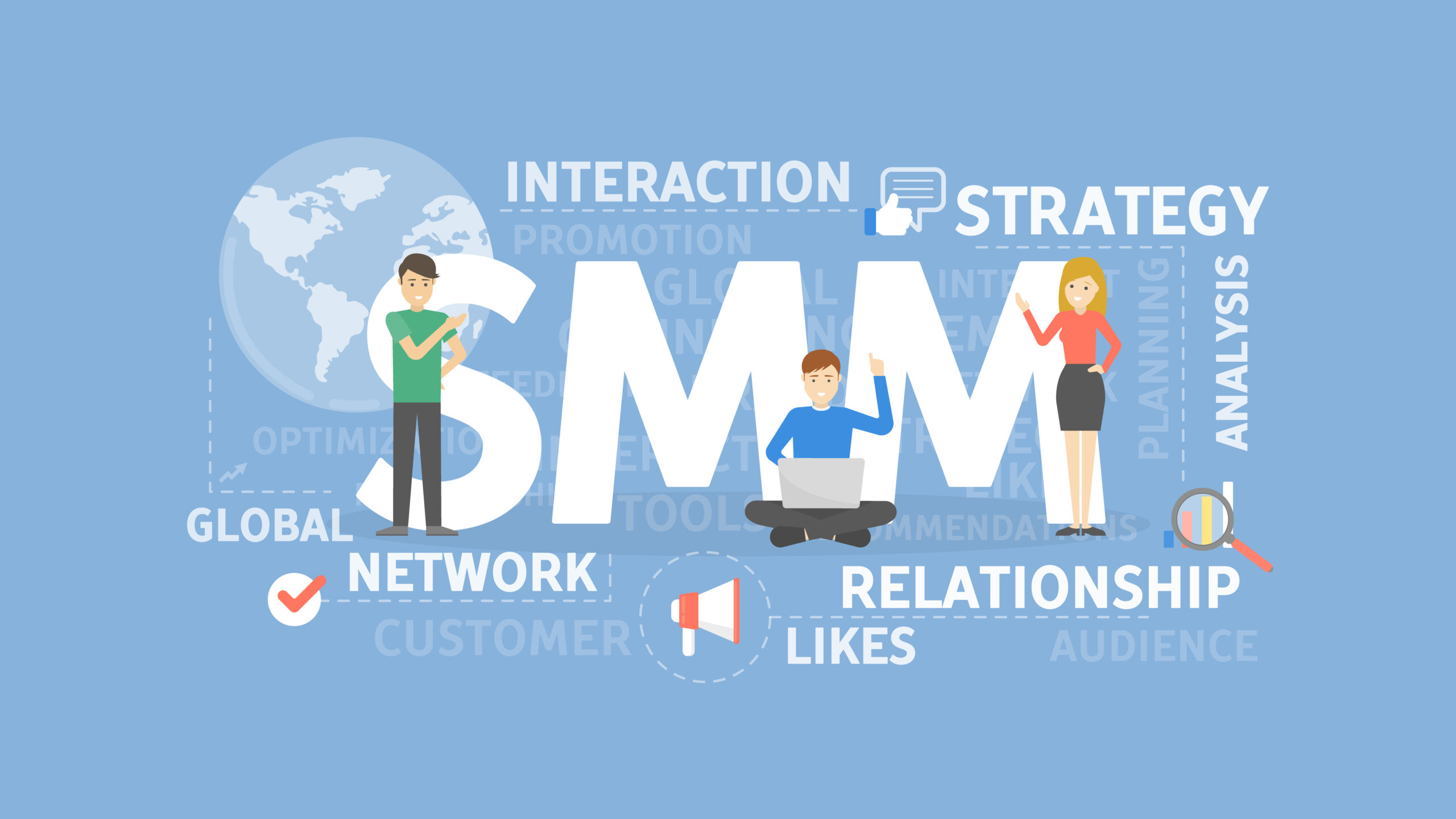Digital marketing has become an essential component of modern business strategies. With the rise of the internet and the increasing use of digital platforms, businesses need to establish a strong online presence to reach their target audience effectively. Various types of digital marketing techniques are available, each serving a specific purpose in driving traffic, generating leads, and increasing conversions. In this article, we will explore five types of digital marketing and discuss their key strategies and benefits.
Search Engine Optimization (SEO)
Search Engine Optimization (SEO) plays a crucial role in enhancing the visibility of a website on search engine result pages. It involves optimizing a website’s content, structure, and other elements to rank higher in organic search results. SEO helps businesses attract relevant organic traffic and improve their online presence.
Importance of SEO
Effective SEO strategies can significantly impact a business’s success in the digital landscape. By appearing on the first page of search results, businesses can gain increased visibility, credibility, and trust among their target audience. SEO also helps build a strong brand presence and establishes businesses as industry authorities.
Key SEO Strategies
To achieve optimal results with SEO, businesses need to employ various strategies, including:
- Keyword research and optimization: Identifying relevant keywords and integrating them strategically throughout the website’s content.
- On-page optimization: Optimizing meta tags, headings, URLs, and internal linking structure.
- Quality content creation: Producing informative, engaging content that aligns with the target audience’s needs and preferences.
- Link building: Acquiring high-quality backlinks from reputable websites to improve the domain authority.
- Mobile optimization: Ensuring the website is mobile-friendly to cater to the growing number of mobile users.
- Pay-Per-Click (PPC) Advertising
Pay-Per-Click (PPC) Advertising involves running targeted ads on various digital platforms, such as search engines and social media networks. Advertisers only pay when a user clicks on their ad, making it a cost-effective way to reach potential customers.
Benefits of PPC Advertising
PPC advertising offers several advantages, including:
- Immediate results: Ads can start generating traffic and leads as soon as they are launched.
- Targeted audience reaches: Precise targeting options allow businesses to reach their ideal customers based on demographics, interests, and behaviors.
- Measurable ROI: Detailed analytics and conversion tracking enable businesses to measure the effectiveness of their ad campaigns and optimize accordingly.
- Budget control: Advertisers can set daily or campaign budgets to control their advertising spend.
Popular PPC Platforms
There are several popular PPC platforms available, including:
- Google Ads: The largest PPC platform, allowing businesses to display ads on Google search results and partner websites.
- Facebook Ads: With a vast user base, Facebook offers advanced targeting options and various ad formats.
- LinkedIn Ads: Ideal for B2B marketing, LinkedIn provides targeting options based on industry, job title, and company size.
- Twitter Ads: Twitter allows businesses to promote tweets, gain followers, and drive website traffic through sponsored content.
- Social Media Marketing
Social Media Marketing involves leveraging social media platforms to build brand awareness, engage with the target audience, and drive website traffic. It includes creating and sharing content, running ads, and interacting with users.
Leveraging Social Media Platforms
Different social media platforms cater to diverse audience demographics and interests. Businesses must identify which platforms their target audience frequents the most and focus their efforts accordingly. Some popular social media platforms for marketing include:
- Facebook: The largest social media platform with extensive targeting options and a wide range of content formats.
- Instagram: Ideal for visually appealing content and reaching younger demographics.
- Twitter: Effective for real-time updates, news, and engaging in conversations.
- LinkedIn: Suitable for B2B marketing and professional networking.
- YouTube: A video-centric platform that allows businesses to create and share video content.
Effective Social Media Strategies
To succeed with social media marketing, businesses should consider the following strategies:
- Content planning and creation: Develop a content calendar to ensure a consistent flow of engaging and valuable content.
- Engaging with the audience: Respond to comments, messages, and reviews to build customer relationships and brand loyalty.
- Influencer partnerships: Collaborate with influencers in the industry to expand their reach and tap into their followers.
- Social media advertising: Utilize paid ads to target specific demographics, increase reach, and drive conversions.
- Analytics and optimization: Regularly analyze social media metrics to identify what works best and make necessary adjustments.
- Content Marketing
Content Marketing focuses on creating and distributing valuable and relevant content to attract and engage a target audience. It aims to build brand authority, establish trust, and generate leads through informative and compelling content.
Creating Engaging Content
Successful content marketing relies on creating content that resonates with the target audience. Some effective content formats include:
- Blog posts and articles: Informative and educational content that addresses common pain points and provides solutions.
- Videos: Engaging and visually appealing videos that convey information or tell stories.
- Infographics: Visual representations of data and information that are easy to understand and share.
- E-books and guides: In-depth resources that offer comprehensive insights into specific topics.
- Podcasts: Audio content that provides valuable information, interviews, or discussions.
Content Distribution Channels
To ensure maximum reach and engagement, businesses should distribute their content through various channels, including:
- Website or blog: Publish content on the company’s website or blog to drive organic traffic and establish a knowledge base.
- Social media platforms: Share content on relevant social media platforms to reach a wider audience and encourage sharing.
- Email newsletters: Send regular newsletters to subscribers featuring curated content and updates.
- Guest posting: Contribute articles to authoritative websites in the industry to expand the reach and build backlinks.
- Content syndication: Republish content on reputable platforms to reach new audiences and drive traffic back to the website.
- Email Marketing
Email Marketing involves sending targeted emails to a list of subscribers to nurture leads, promote products or services, and maintain customer relationships. It is an effective way to engage with the audience directly and drive conversions.
Building an Email List
Building a quality email list is crucial for successful email marketing. Businesses can gather email addresses through various methods, including:
- Website opt-in forms: Placing opt-in forms on the website to capture visitor emails.
- Lead magnets: Offering valuable resources, such as e-books or exclusive content, in exchange for email subscriptions.
- Social media campaigns: Running campaigns that require users to provide their email addresses to participate.
- Customer loyalty programs: Encouraging customers to sign up for newsletters or updates in exchange for exclusive discounts or rewards.
Email Marketing Best Practices
To make the most of email marketing, businesses should follow these best practices:
- Personalization: Tailor emails to individual recipients, addressing them by name and providing relevant content.
- Segmentation: Divide the email list into segments based on demographics, interests, or purchase history to send targeted emails.
- Automation: Use email automation tools to send timely and personalized emails based on specific triggers or actions.
- A/B testing: Experiment with different email subject lines, content, and CTAs to optimize open and click-through rates.
- Compliance with regulations: Ensure that emails comply with anti-spam laws and provide unsubscribe options for recipients.
Conclusion
Digital marketing offers businesses various avenues to reach and engage their target audience. By understanding the different types of digital marketing and implementing effective strategies, businesses can enhance their online presence, attract relevant traffic, and drive conversions. Whether through SEO, PPC advertising, social media marketing, content marketing, or email marketing, businesses can leverage digital platforms to achieve their marketing goals and stay ahead in the competitive digital landscape.
FAQs
FAQ 1: Which type of digital marketing is the most effective?
The effectiveness of digital marketing techniques depends on various factors, such as the business’s goals, target audience, industry, and available resources. Adopting a holistic approach and utilizing a mix of digital marketing strategies is recommended to achieve optimal results.
FAQ 2: How long does it take to see results with digital marketing?
The timeline for seeing results with digital marketing can vary depending on several factors, including the industry’s competitiveness, the effectiveness of the strategies employed, and the budget allocated. Generally, building brand awareness and gaining traction takes time, but consistent efforts and data-driven optimizations can lead to significant results over time.
FAQ 3: Is it necessary to use all types of digital marketing?
No, it is not necessary to use all types of digital marketing. Businesses should evaluate their target audience, marketing goals, and available resources to determine which digital marketing techniques suit their needs.
FAQ 4: What is the average cost of digital marketing services?
The cost of digital marketing services varies depending on the scope of work, the level of competition in the industry, and the service provider’s expertise. It is recommended to discuss the requirements with multiple agencies or professionals to get a better understanding of the costs involved.
FAQ 5: Can digital marketing work for small businesses?
Absolutely! Digital marketing provides an affordable and effective way for small businesses to reach their target audience, build brand awareness, and drive conversions. With careful planning, strategic implementation, and consistent efforts, small businesses can compete with larger competitors in the digital space.











